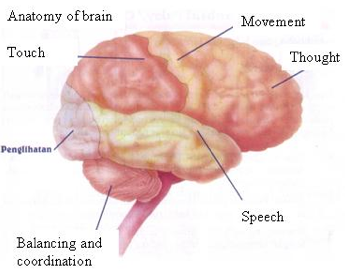Introduction
- Behaviour problems or ‘challenging behaviours’ and adaptive skill deficits are common among disabled children and adults, particularly those with severe learning difficulties.
- Problem behaviours include:
- Aggressive / violent behaviour
- Noncompliant / oppositional behaviour
- Social dependence behaviour
- Avoidant behaviour
- Passive behaviour
Causes
What causes behaviour problems?
- Most behaviour is learnt. Some are due to deficiency in involuntary brain function as well as chemical imbalance in the brain.
- If a behaviour is problematic, it is usually learnt from some situation.
- People with disabilities have behaviour problems due to common difficulties in adaptive skills such as communication, daily living skills and social-emotional skills.

Incidence
What is the incidence of behaviour problems?
- 45.8% of disabled children aged 6 – 10 years present complaints of behaviour problems
- These children will grow up into adults with behaviour problems if they are not intervened early.
Conditions
What conditions are associated with behaviour problems?
- Autism spectrum disorders
- Attention Deficit Hyperactive Disorder (ADHD)
- Alzheimer’s Disease
- Dementia
- Learning disabilities (e.g. intellectual impairment, dyslexia)
- Difficulties in verbal and nonverbal communication
Signs & symptoms What are the signs and symptoms?
- Any socially inappropriate behaviour can be considered challenging behaviour if it poses a great deal of effort to manage it
- Obvious challenging behaviours are those that are a threat to life and limb and puts people in danger
- Majority suffers impairment in
- social interaction
- Sustained play and special interest with certain toys or objects
- Prefers to be alone
- Difficulty in mixing with other people
- Unable to relate to others in the right way
- Over sensitive or under sensitive to pain
- No real fears of danger
- Communication (verbal and non-verbal)
- Difficulty in expressing needs
- Uses gestures instead of words
Problems faced
What are the problems faced by the client?
Activities and interests
- Engages in odd ritualistic movements such as rocking
- Laughs, cries or shows distress for reasons not apparent to others/temper tantrums
- Not responsive to normal teaching methods
- Not responsive to verbal cues/acts as if deaf although hearing tests are in the normal range
- Difficulties in motor activities
- Physically over active or under active
- Destructive
- Sleep problems
- Poor academic performance
- Difficulty in communication with others
- Difficulties in making friends and building close relationships
- Securing and maintaining jobs
- Problem solving
How parents and carers feel and cope?
- Confused, overwhelmed and helpless
- Hard to cope with odd behaviour
- Feel guilty, anger, shame and responsible for the child
- Financial stress of the therapy
- Frustrations at lack of facilities
Management
Who should be involved in diagnosis?
Ideally a multidisciplinary team consisting of
- Psychiatrist
- Clinical Psychologists
- Developmental Psychologists
- Paediatrician (i.e. Neurologist, Developmental)
- Ear, Nose and Throat surgeon
- Audiologist
- Speech Pathologist
- Occupational Therapist
Who should be involved in the management of disabilities?
- Carers
- Clinical Psychologist
- Speech therapist
- Audiologist
- Physiologist
- Occupational therapist
- Psychiatrists
- Social Worker
- Specialist nurse (e.g. mental health)
- Medical specialist (e.g. paediatrician)
- Any other agencies who are involved with the person who has challenging behaviour.
Treatment
- Drug therapy for severe behaviour problems
- Behavioural Management Therapy
- Adaptive Skills training (Daily living, social, self-care, communication, problem solving, coping)
- Parenting/Carer Skills for carer
- Parent/carer support
Rehabilitation
When to start rehabilitation?
- As soon as possible.
How to register?
- Once diagnosis is confirmed, get the “Borang Pendaftaran dan Cadangan Penempatan” from Health Centre, State Social Welfare and Education Department.
Who will assist in the registration?
- Attending Doctor will fill the relevant forms.
What benefits you will get on registration?
How to find job placement?
- Refer to
- http://www.jkm.gov.my/perkhidmatanoku.htm
Prevention
- It is impossible to totally prevent any challenging behavior from happening,but you need to analyse why the behaviour occurs.
- Prevention come in the form of changing or preventing the triggering factor and consequences of the behaviour so as to modify the behaviour.
- Need to reduce opportunities for the behaviour to happen.
Support groups
- National Autistic Society of Malaysia (NASOM) 4, Jalan Chan Chin Mooi, 59100 Kuala Lumpur Tel: 03-40223744
- Bethel Centre
- 5, Jalan Kenarai 10, Bandar Puchong Jaya, 47100 Puhong, Selangor. Tel: 03-80753978
- Dignity and Services P.O. Box. 498, Jalan Sultan, 46760 Petaling Jaya, Selangor. Tel: 03-77830849
- Hua Ming Autistic Society No.2, Jln. 20/8, Paramount Gardens, 46300 Petaling Jaya, Selangor. Tel: 03-79587385 http://www.autism.org.my/about_society.htm
References
- Autism Understanding and Assisting, Dr. Teoh Hsien-Jin, HoPak S/B, No.1, Jalan TPK 1/6, Taman Perindustrian Kinrara, 47100 Puchong, Selangor, Malaysia
- Living with Autism, Dr. Sung Min Lena Heng, Times Editions, Singapore
- Understanding Difficult Behaviours, Geriatric Education Center Of Michigan
- Introduction to Dementia Care, Making Connection – Course Workbook, Sir James McCusker Training Project
- http://www.adultadd.com/2_2_recognizing/screener.jsp?ccd=kwstra594
- http://www.umme.edu.my/fom/research/psycho med/psy 03 02.htm
- http://www.autism.org.my/q$26amp;a.htm
| Last Reviewed | : | 05 September 2008 |
| Writer | : | Cheoh Siew Tin |







